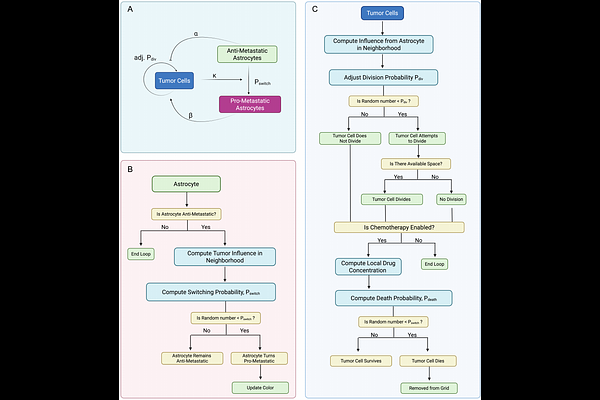Astrocyte reprogramming drives tumor progression and chemotherapy resistance in agent-based models of breast cancer brain metastases

Astrocyte reprogramming drives tumor progression and chemotherapy resistance in agent-based models of breast cancer brain metastases
Kaur, R.; Barker-Clarke, R.; Dhawan, A.
AbstractBreast cancer brain metastases (BCBM) affect nearly 90,000 patients annually in the United States and carry a significant risk of mortality. As metastatic lesions develop, the unique milieu of the brain microenvironment shapes disease progression and therapeutic response. Among resident brain cells, astrocytes are both the most common, and are increasingly recognized as key regulators of this process, yet their precise role remains poorly defined. Here, we present a hybrid agent-based model (ABM) to simulate tumor-astrocyte interactions on a two-dimensional lattice. In our model, metastatic tumor cells induce phenotypic reprogramming of astrocytes from an anti- to a pro-metastatic state, thereby enhancing tumor proliferation. We systematically evaluate how variations in astrocyte density, spatial distribution, and chemotherapy impact tumor expansion and spatial morphology, quantified by fractal dimension, lacunarity, and eccentricity. Our simulations reveal that astrocyte reprogramming accelerates tumor progression and contributes to increased morphological complexity and chemotherapeutic resistance.